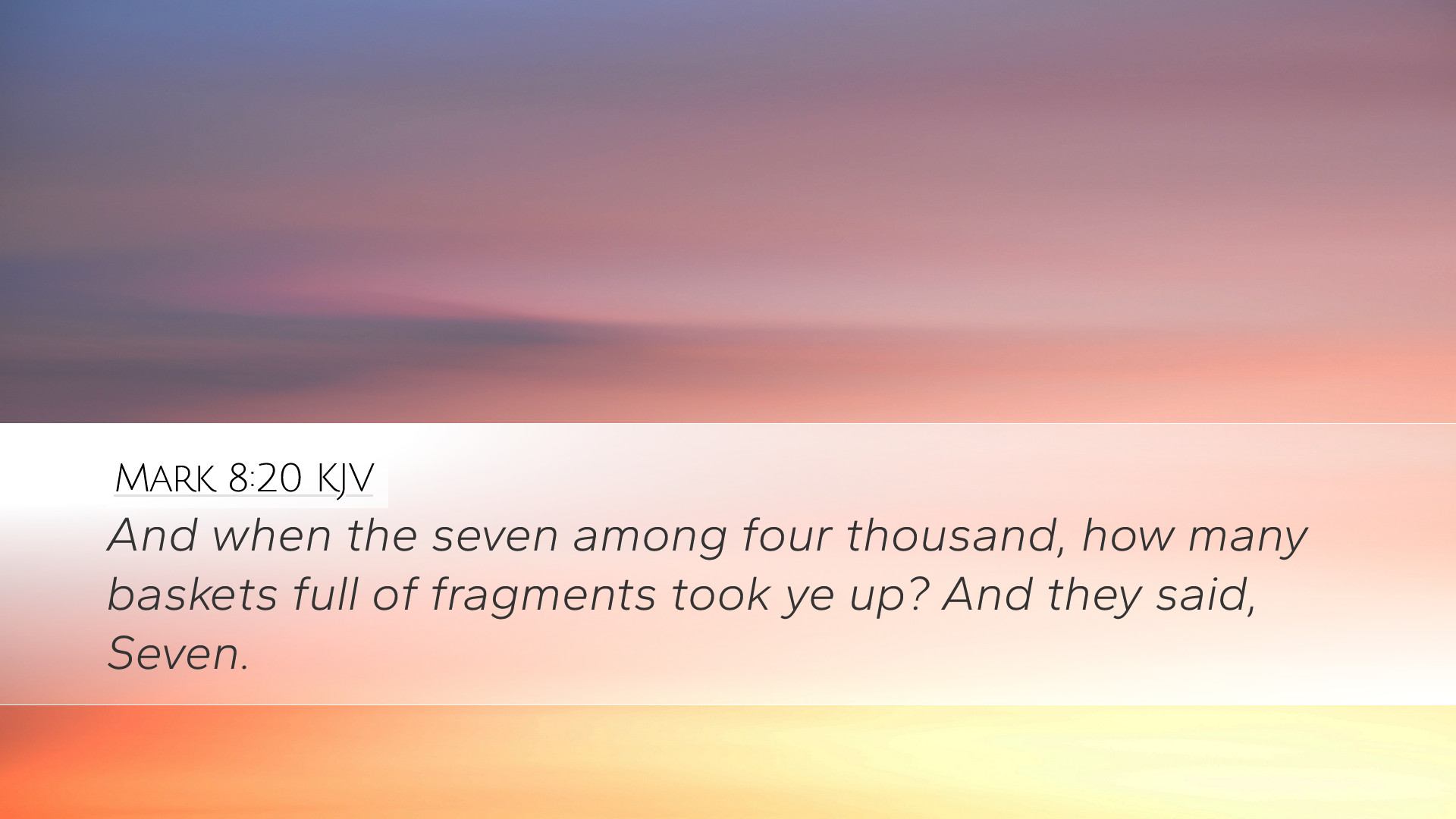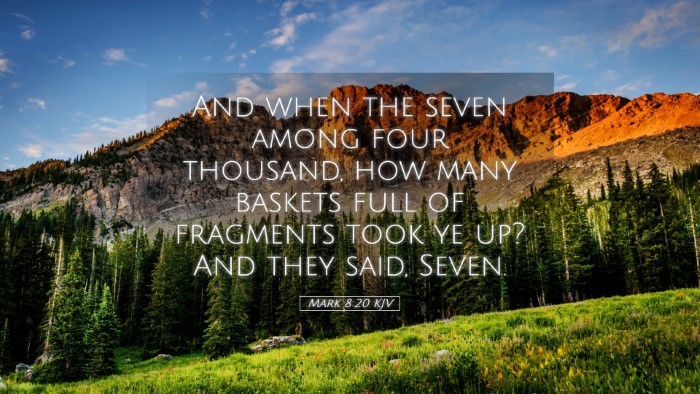Commentary on Mark 8:20
Verse Context: Mark 8:20 states, "And when the seven among four thousand, how many baskets full of fragments took ye up? And they said, Seven." This verse continues the narrative of Jesus’ miraculous feeding of the four thousand, emphasizing both the nature of His ministry and the responses of His disciples.
Introduction
This passage serves as a poignant reminder of Christ's miracles and the significant lessons He imparted through them. It is essential to consider the cultural and historical context of this miracle as well as the reactions of the disciples to fully grasp the implications of this verse.
Significance of the Miracle
As chronicled by Matthew Henry, this miracle, like the feeding of the five thousand, reveals the compassion of Jesus towards the multitudes. He recognized their physical needs and took action to fulfill them. This act was not just about physical sustenance but also about demonstrating His divine authority and power over nature.
- Compassion for the Multitude: Henry emphasizes that Jesus' concern for the people signifies His role as the Good Shepherd, who not only provides for the spiritual needs but also cares for the physical well-being of His flock.
- Evidence of His Power: Albert Barnes points out that the miracle serves as an illustration of Christ’s miraculous ability to provide abundantly, reinforcing the faith of His disciples and the watching crowd.
The Disciples’ Understanding
In the narrative, Jesus’ question about the number of baskets left over after feeding the four thousand serves as a probing inquiry into the disciples’ understanding and faith. Adam Clarke notes that this direct questioning reveals how easy it is for human understanding to falter, even in the face of divine miracles.
- Lack of Comprehension: Clarke observes that the disciples had witnessed multiple miracles yet still struggled to grasp their significance, highlighting a recurring theme of spiritual blindness among His followers.
- Call to Reflection: This moment challenges us to reflect on our understanding of God's provisions in our lives. As theologians, we must ask ourselves—are we responsive to the miracles occurring around us?
Theological Implications
This passage from Mark not only recounts a historical event but also invites deeper theological reflection. As noted by both Henry and Barnes, the miraculous feeding emphasizes several key theological points:
- God’s Provision: The number of baskets collected, seven in this case, symbolizes completeness and divine sufficiency. It reflects that God meets every need of His people abundantly.
- Faith and Doubt: The repeated miracles invite the audience to reflect on their faith. Even while miracles unfold before their eyes, the human heart often oscillates between belief and doubt.
- The Broader Mission: The feeding of the four thousand also signifies Jesus' mission extending beyond Israel, speaking to the inclusivity of the Gospel message. As Barnes highlights, this prefigures the wider spread of Christ’s teachings to the Gentiles.
Practical Applications
For pastors and Bible scholars alike, this passage offers several practical applications:
- Encouragement in Ministry: This miracle can encourage ministry leaders to remain compassionate and proactive in the face of needs within their communities, reflecting Christ’s heart.
- Strengthening Faith: For congregations, this serves as a reminder to engage in the practice of recounting God’s faithfulness in their lives, thus strengthening communal faith.
- Awareness of Doubts: Acknowledge that doubt can exist even in the heart of a believer. The call is to bring those doubts before Christ, trusting in His ability and provision.
Conclusion
Mark 8:20 provides not only a narrative of a miracle but also serves as a profound teaching moment for the disciples and the Church today. It urges us to recognize Christ's compassion, to understand our human limitations in faith, and to trust in God's abundant provisions. As we glean insights from the scriptures and the reflections of theologians such as Henry, Barnes, and Clarke, may we be equipped to deepen our faith and understanding of God’s miraculous works in our lives.


